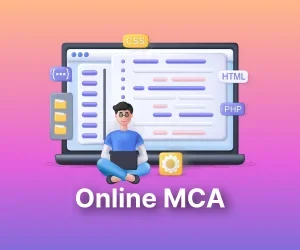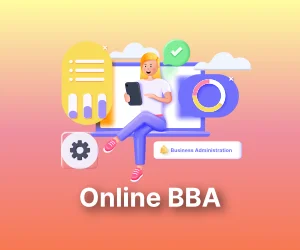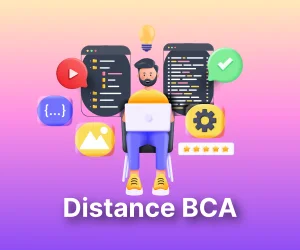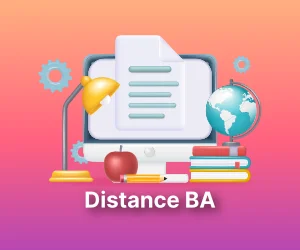What is digital marketing? Digital marketing is the use of websites, apps, mobile devices, social media, search engines, and other digital means to promote and sell products and services. Digital marketing incorporates many of the same principles as traditional marketing and is often seen as another way for companies to reach consumers and understand their behaviour. Companies often combine traditional and digital marketing techniques in their strategies. However, digital marketing also comes with its own set of challenges. Digital marketing took off with the widespread adoption of the Internet in the 1990s. Why Digital Marketing Is Important To succeed, businesses must find effective ways to spread the word about their products and services, and this has never been more challenging than it is today. Consumers are faced with more choices from more providers, all clamoring for their attention. Deploying compelling content on digital marketing platforms is one way to stand out from the crowd. Another reason why digital marketing is so important to businesses is simply this: it's where your ideal customer hangs out. According to research experts at Statista, there will be 5.19 billion internet users and 4.88 billion social media users worldwide by 2023. Internet users spend an average of six hours and 40 minutes a day online. This huge, highly engaged online audience presents huge opportunities for businesses looking to get exposure for their goods and services. Digital marketing offers almost endless opportunities to connect with potential customers and is an important part of almost every business's marketing mix. Types and strategies of digital marketing Creating a solid digital marketing strategy for your business starts with a better understanding of the types of digital marketing methods that yield the best returns. Below, we will introduce you to six types of digital marketing: social media marketing, search engine marketing (SEO), pay-per-click (PPC) advertising, email marketing, mobile marketing, and content marketing. Social media marketing Social media marketing is one of the most popular forms of digital marketing. In the United States alone, more than 308 million people access the social network at least once a month. People of all ages use social media for entertainment, interaction with others, information about specific interests, and shopping. For businesses hoping to gain visibility and sales, social media statistics reveal that incorporating social media into your marketing mix can be a good strategy. Social media is the main source of brand information for 78% of internet users. Nearly half of US consumers report purchasing social media. Top social platforms include YouTube, Facebook, TikTok, Instagram, WhatsApp, Pinterest, LinkedIn, Snapchat, and X (formerly Twitter). New platforms such as BeReal and Poparazzi regularly enter the market. The social environment is constantly evolving. For example, Twitter, now X, was once a top platform, but now the social channel seems to be struggling. Twitter has lost around 32 million users since Elon Musk bought the platform in 2022. TikTok didn't even hit the international scene until 2017, but now has over 1.7 billion monthly active users. Digital marketers must remain alert to changes in social media channels. Search engine optimization (SEO) is an essential digital marketing strategy for businesses that benefit from increasing traffic to their website. SEO is the process of optimizing your website so that search engines like Google will rank it highly on the search engine results pages (SERPs). SEO is about driving organic traffic to your site. Unlike paid advertising, with SEO, visitors who find your website come from organic search. Around 8.5 billion searches are performed on Google every day, which presents many opportunities for businesses looking to promote their products and services. Ranking highly on Google is the key to getting more traffic to your website. In a survey conducted by Search Engine Journal, 49% of respondents said that SEO delivers the highest return on investment (ROI) of all digital marketing channels. You can get started with SEO yourself for free by learning more about Google Ranking Factors or using top SEO tools and software. You can also work with an SEO service or agency to create an SEO plan and manage your SEO for you. PPC advertising is exactly what the name suggests: you pay a fee every time someone clicks on your digital ads. The amount you pay is determined by the platform you advertise on, the potential traffic of your promoted post, and the number of competitors willing to pay for similar ads. Google Ads is the largest PPC platform in the world. Many companies that deal with SEO marketing also deal with PPC advertising on Google. Paid Google ads appear above organic search results, and this placement advantage can drive even more traffic to your website. Google Ads is not your only way of PPC advertising. You can also buy PPC ads through the Microsoft Search Network on Bing and partner sites, as well as on top social channels, including YouTube, Facebook, Instagram, Snapchat, LinkedIn, Amazon, and TikTok. Email marketing is another top digital marketing strategy you'll probably want to add to your marketing mix. According to Statista, on average, businesses earn at least $32 for every dollar spent on email marketing. For some industries, such as retail, e-commerce, and consumer goods, that number is $45. To be effective in email marketing, you need to create a strategy for collecting email addresses from clients and prospects. Many businesses collect emails with every customer encounter and sometimes offer a special incentive to join their email list. Your business website is also a great place to offer incentives to your visitors to grow your email database. Growing and nurturing your email list is critical to successful email marketing. You must also respect your list's communication preferences and only send relevant information that your base wants to receive. Failing to master the legal aspects of email marketing, including compliance with CAN/SPAM laws, is also paramount to email marketing success. Rather than manually managing business emails, most marketers purchase email marketing software. The best email marketing software makes it easy to update your email database and handle new subscribers and unsubscribers for you. Your email software should also make it easy to segment your email database based on customer interests, create attractive email designs, manage email scheduling, and measure email metrics, including open rates, click-through rates (CTRs), conversion rates, and bounce rates. There are over 310 million smartphone users in the US alone, so it should come as no surprise that mobile marketing has become a popular digital marketing strategy for businesses. Mobile marketing is usually done via text, also called Short Message Service (SMS). Text open rates are estimated to be as high as 98%, which is one of the reasons why mobile marketing can be so effective. While text messages are the most common way to market via mobile devices, notifications from mobile apps and social channels can also be received on smartphones. Business applications for mobile marketing are expanding every day. Every form of digital marketing relies on compelling content to attract interest and engage prospects and customers. Content marketing is a term used to describe the different types of content you can develop to deploy in your digital marketing campaigns. Content marketing can take many forms, including blogs, infographics, whitepapers, e-books, videos, podcasts, quizzes, slide decks, and webinars. Unlike advertising, content marketing is not strictly promotional but instead uses more subtle tactics to inform, educate, or influence a desired target market. You can use content marketing to build authority on specific topics or create buzz for your brand. One of the key benefits of content marketing is that you can do it on virtually any budget. A do-it-yourself (DIY) approach to content marketing will cost you pennies, or if your budget allows, you can work with copywriters, videographers, designers, and other content development professionals to create content for your business.

 Online MBA
Online MBA
 Distance MBA
Distance MBA
 Online MCA
Online MCA
 Distance MCA
Distance MCA
 Online Executive MBA
Online Executive MBA
 Online MBA Dual Specialization
Online MBA Dual Specialization
 Online Global MBA
Online Global MBA
 Part Time MBA
Part Time MBA
 Online M.Sc
Online M.Sc
 Distance MSc
Distance MSc
 Online M.Com
Online M.Com
 Distance M.Com
Distance M.Com
 Online MA
Online MA
 Distance MA
Distance MA
 Online BBA
Online BBA
 Distance BBA
Distance BBA
 Online BCA
Online BCA
 Distance BCA
Distance BCA
 Distance B.Sc
Distance B.Sc
 Online B.Sc
Online B.Sc
 Online B.com
Online B.com
 Distance B.Com
Distance B.Com
 Online BA
Online BA
 Distance BA
Distance BA
 B.Tech for Working Professionals
B.Tech for Working Professionals
 Part-time B.Tech
Part-time B.Tech
 M.Tech for Working Professionals
M.Tech for Working Professionals
 Part-Time M.Tech
Part-Time M.Tech
 Online B.Tech After Diploma
Online B.Tech After Diploma









